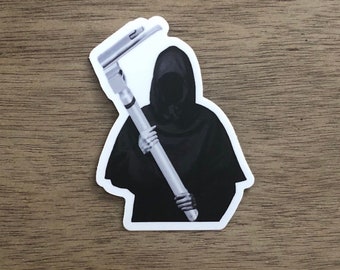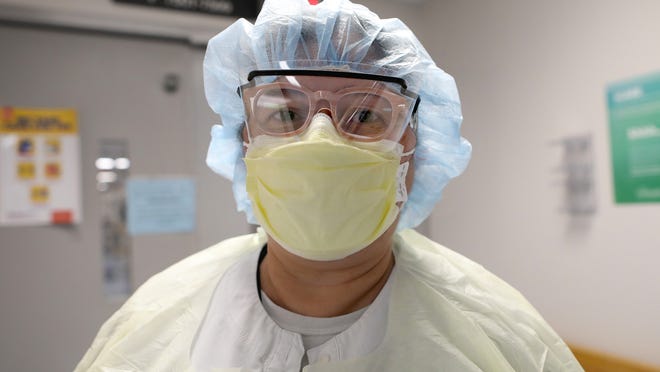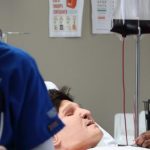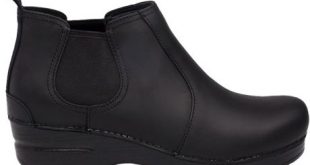Isabel Myer developed the Myers-Briggs Type Indicator (MBTI) during the Second World War with the primary intent to facilitate team-building within healthcare professionals, especially nurses. It details how a career intersects with personality.
Every profession has diverse personalities. In nursing, they are evident through; communication, stamina, attention to detail, compassion levels, emotional stability, and decision-making ability.
Besides the common MBTI personality types, we get to examine 16 nurse personalities you are likely to find in a healthcare setting.
Caretaker Nurse

Nursing is a maternal profession. As a caretaker n
urse, you have a heightened concern for the human side of those around you. Equipped with emotional wisdom, you barely use force to rally your team to get things done. You identify as a caretaker nurse if you-
- Listen to patients attentively, give them advice and encouragement.
- Go out of your way trying to boost the confidence of patients.
- Prefer discomfort as you attend and care for the patient’s family.
- Look out for other nurses, for example, getting them a meal after the team has had a hectic day.
- Ensure a patient gets humane treatment within their rights.
- Show compassion, are generous, and empathetic.
As a caretaker nurse, you place the well-being of others above your own. You are your patients’ cheerleader and self-sacrifice to ensure their best interests materialize.
Hard-Ass Nurse
A hard-ass nurse prefers less nurturing methods than the empathetic caretaker nurse, having in mind a positive outcome for the patient. As a hard-ass nurse, you;
- Are direct with the patient family members.
- Have strict follow-up for your patient’s progress but do not make them doubt themselves.
- Give pragmatic advice to residents and fellow nurses.
- Approach problematic situations head-on.
Hard-ass nurses have good intentions but will not always offer emotional presence.
Teacher Nurse

The teacher nurse has the intention to help all other nurses during medical procedures. When a teacher-nurse, you take up student nurses and other less experienced or less confident nurses and nurture them. This help could range from guiding in recording symptoms accurately to explaining the details of a diagnosis to a patient’s family.
As a teacher nurse, you do this naturally to ensure your colleagues use more competent and knowledgeable approaches.
Student Nurse
When a student nurse, you do not have much experience and may hold back or doubt yourself when making decisions. The self-doubt is evident through anxiety and frequent consultation with your peers, despite years of instruction, clinical practice, and tests. You observe more experienced nurses and apply the observations to your experiences.
The Boss Nurse
The boss nurse has a way around issues within the team. As a boss nurse, you are not the most knowledgeable within the group, neither are you the head of the department, but you have a way to keep things going through resourcefulness and wit.
As a boss nurse, you do not shy to express yourself to patients or supervisors through a balance of knowledge, power, and polished people skills. You are born a natural leader, visible to your team. The boss nurse eventually gets to be the head of the department.
Grim Reaper

There are claims that some nurses routinely give perceptions that particular critically ill patients will get worse, and somehow, the expectation materializes, and the patients do not survive. Most departments or wards view this as pure coincidence, but nurses like to call them grim nurses.
Robot Nurse
The robot nurse handles all situations with finesse. You do not get affected by emotions, long hours, death or, stress. When a robot nurse, you save your team in difficult times by remaining collected and using medical information to offer solutions.
The Genius Nurse
Taking after Einstein, the genius nurse is well versed in his trade. Being a genius nurse, your peers view you as a walking thesaurus, the go-to nurse for any medical consultation within the team. You give factual and reliable information and go up the ladder due to this trait.
Sleeping Beauty
The sleeping beauty nurse handles pressure by taking naps to recharge. Interestingly, they love to take the naps as soon as their bodies demand, hence requiring to be dealt with patience when they are in your team. They take naps both at home and within the workplace during shifts.
Adrenaline Consuming Nurse

The adrenaline-consuming nurse draws energy from intense medical environments. They are not put off by bodily fluids and other situations commonly termed as disgusting to behold or nauseating. They perform best under pressure in ambulances, the emergency room, or the ICU.
Healing Angel
Nurses delight in the healing of patients as part of their goals. The healing angel nurse overexerts to heal patients from illness. They have compassion in their work and often forget to take care of themselves while empathizing with patients. The healing angel nurse is prone to more frequent burnout. They ensure that the patient is comfortable and healing well, even if it means taking long hours or skipping meals for them.
Praise Seeker
Despite being in a thankless profession, praise-seeking nurses want their peers, patients, and supervisors to acknowledge their efforts. They do not take long in the nursing profession and end up as teachers, where they get admiration for their knowledge. As a nurse, the praise seeker will keep talking about how they feel fulfilled and try to strike friendships with supervisors, expecting public praise or promotion.
Delegator
The delegator nurse does not like owning tasks. This could stem from a lack of confidence in their skills or pure avoidance. A delegator nurse may be mistaken for a leader as they assign most of their work to others.
The delegator identifies what needs to be done, picks some of it, and does it slowly while the rest of the team takes up bulk while trying to compensate for the speed.
Hammock Nurse
The hammock nurse oozes positivity. For some reason, having one within your team makes you feel that you can handle any situation and get a positive outcome.
Poison Nurse
No one likes to be around the poison nurse. They are unavoidable but do not blend well with most team members in interpersonal interactions.
Lightning Nurse
Self-starters are lightning-nurses. They do not await instruction from patients or supervisors. They serve patients heartily by personal initiative.
Bottom Line
Understanding the individual functioning under each personality helps inform workflow and strategic decisions, building solid and well-coordinated healthcare teams.
 Nursing Trends
Nursing Trends







